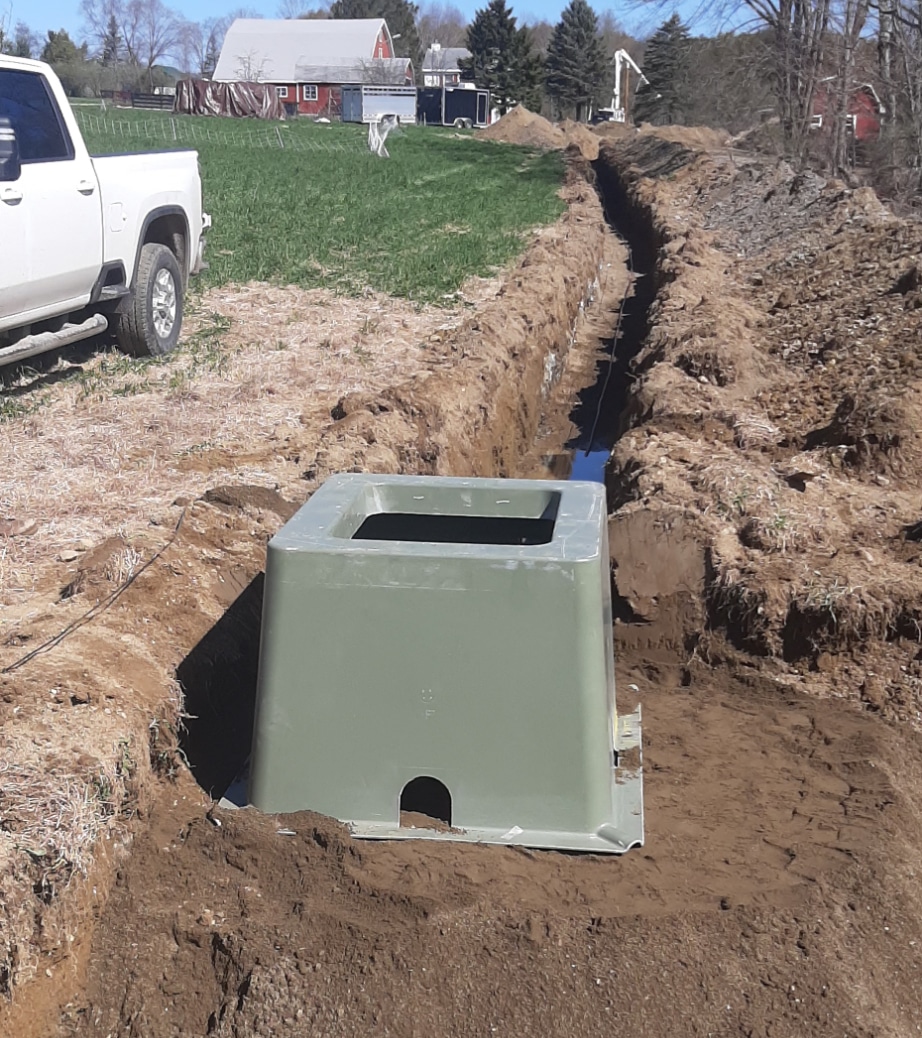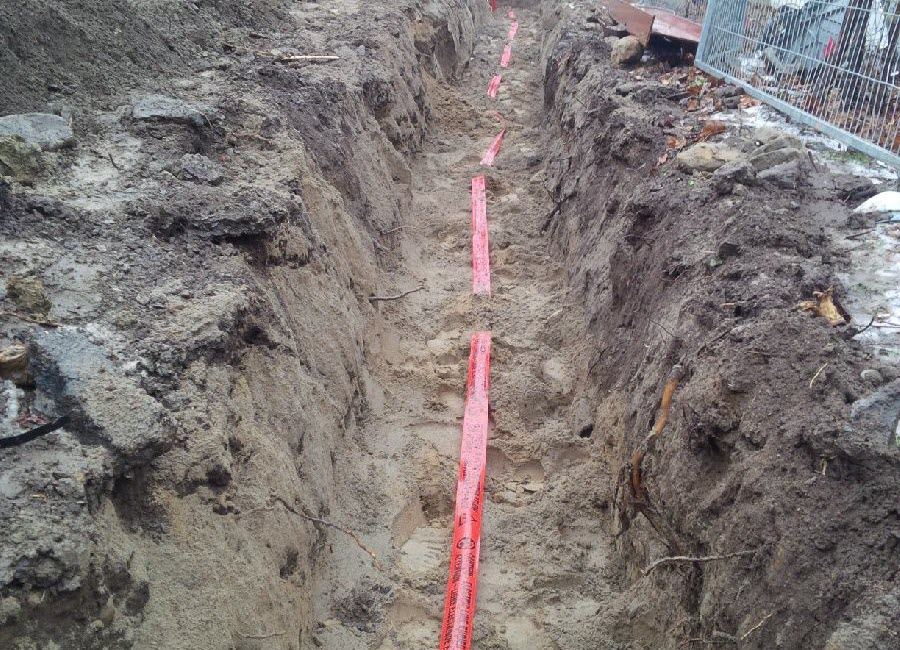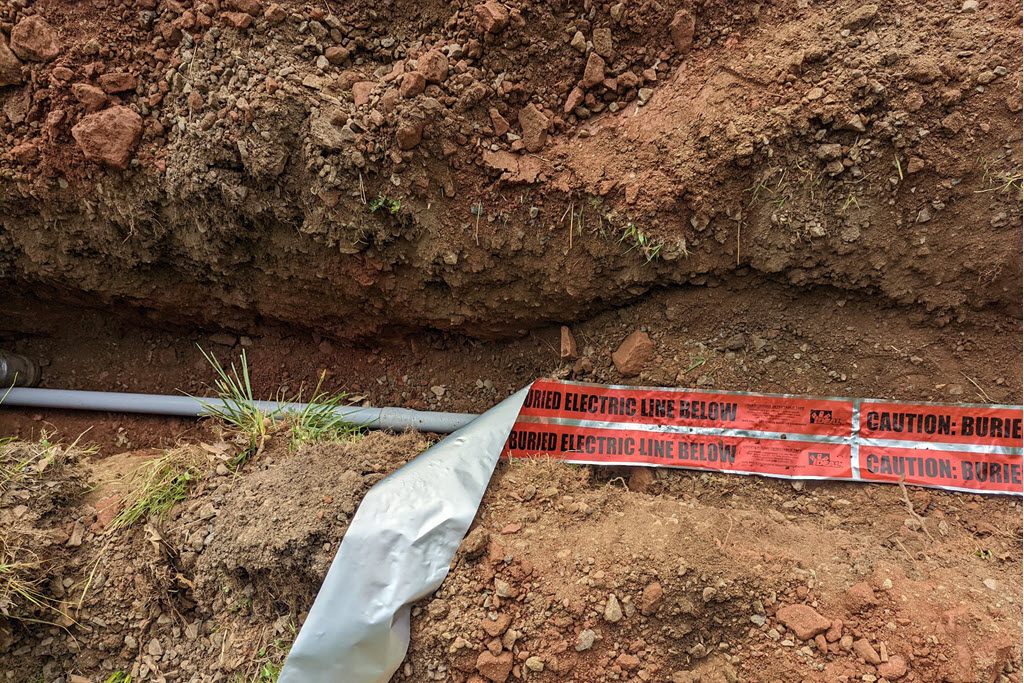Electric Line Servicesin Lapeer MI
Service Electrical Lines Installed for Safe and Reliable Power
We Are Locally Owned & Operated For Over 37 Years
Contact Us Today!
We Serve Businesses In And Around The Following Cities:
About Electric Line Services
Introduction
The city of Lapeer has never shied away from progressive initiatives, a testament that is evident in the steady expansion of electric line installations among commercial properties. The paradigm shift towards cleaner, more efficient, and versatile electrical solutions has become more than just a passing trend – it’s an essential step towards a future-proofed, sustainable business. In this comprehensive guide, we delve into the intricate web of electrical line benefits, its process and the real-world applications using local references and experiences in Lapeer.
The Significance of Electric Line
As our energy needs have evolved, so too have the solutions that cater to them. The electric line is a key gear in the grand wheel of a city’s infrastructure, enabling the smooth transmission of electricity from substations to commercial properties. This is where our partner, D&J Contracting, has made a significant impact. With their high-level skill set and deep understanding of the local climate, terrain, and commercial environment, D&J Contracting have been instrumental in driving the electric line narrative in Lapeer.
Ground Electricity: A Lively Force
The power of ground electricity cannot be understated. From lighting and heating to driving complex machinery and tech-related endeavors, ground electricity brings life into commercial properties. Whether it is a small boutique hotel, a large manufacturing plant, or a sprawling commercial complex, the electric line serves as the lifeline, offering an unwavering anchor that can path the way forward in Lapeer’s vibrant commercial sector.
The Electric Line Installation Process
Erecting an electric line is not a process that’s carried out on a whim. It’s a well-calculated operation involving series of significant steps, each requiring a high degree of precision and expertise, all of which D&J Contracting provides. This includes assessing the site-specific requirements, ensuring compliance with the city’s codes and regulations, arranging and connecting electrical components, installing the electrical line, and testing the entire set-up to ensure everything is functioning as it should.
Beneficial Impact on Commercial Properties
Commercial properties in Lapeer which have migrated to the electric line have reported myriad benefits. With an increased capacity for power delivery, businesses can run more operations simultaneously, hence increasing productivity rates and revenue generation. This also equates to resiliency in the face of power surges, ensuring continuous service delivery. Such is the versatile and robust nature of the electric line, a trait attributing significantly to its expanded use across Lapeer’s commercial sector. Locally, several businesses have entrusted their electrical line needs to D&J Contracting, whose services have resulted in efficient, cost-effective, and sustainable solutions.
Real-World Applications of Electric Line Services
It is quite challenging to find an industry within Lapeer’s commercial sector that hasn’t reaped the benefits of installing an electric line. Firms engaged in a variety of sectors, from hospitality and tourism to retail and manufacturing, have experienced boosted productivity and significant energy savings. Restaurants and other hospitality businesses have managed to create an inviting atmosphere for their patrons, facilitated by reliable and consistent electric line services. Manufacturing units have seen a surge in their production capacity, thanks to the steady and abundant supply of electricity made possible by this service.
Why Choose D&J Contracting
The standards and expertise offered by D&J Contracting, particularly in their electrical installation services, are unrivaled in Lapeer. Their customer-centric approach, meticulous service delivery, and high commitment to safety stand testament to their unwavering dedication towards their clients. D&J Contracting’s commitment to providing superior electrical line services is unquestionably a prime factor behind the positive shift toward electric lines in Lapeer.
Final Thoughts
Carving out a resilient and efficient commercial environment in Lapeer demands the adoption of reliable electrical solutions such as the electric line. The multiple benefits offered by this service not only pave the way for substantial financial savings, but they also go a long way in ushering in a sustainable and eco-friendly future. Leveraging the expertise of companies like D&J Contracting, businesses in Lapeer can seize the bountiful opportunities offered by electric line services. In an era of ever-increasing demand for electricity, the electric line undoubtedly presents a brighter future for commercial properties, while contributing to Lapeer’s growth and sustainability.
Electric Line Services Gallery


Call Us Today to receive your Free Quote for
Electric Line in Lapeer
Serving: Lapeer, Michigan

About Lapeer, Michigan
|
|
This section needs additional citations for verification. (January 2020)
|
By an ordinance of the Congress of the United States passed on July 13, 1787, the area lying northwest of the Ohio River, though still occupied by the British, was organized as the Northwest Territory. Lapeer County was once part of the Northwest Territory. In January 1820, the county of Oakland was formed, which served the area now known as Lapeer, until the County of Lapeer was formed in 1837, when Michigan became a state. The first elections were for county officers, with 520 persons voting in 1837.
Folklore claims Lapeer was derived from the naming of the south branch of the Flint River, which flows northwestward in Lapeer County. French and Indian traders frequently passed over this section of the county and through the river, ultimately naming the city for the stone that lay at the river bottom. In French, stone is called “la pierre”; the English pronunciation of these words gives Lapeer. The river was named Flint, synonymous with stone. (See List of Michigan county name etymologies.)
It is also believed that the first settlers who came from New York State may have brought the name Lapeer from a similarly named city in their home state. A third supposition is that French missionaries named the city Le Pere, meaning The Father.
The first settlers in Lapeer were a group of men named Alvin N. Hart, Oliver B. Hart, and J.B. Morse. The most prominent of the three, Alvin N. Hart, was born in Cornwall, Connecticut, on February 11, 1804. He came to Lapeer in 1831 and platted the Village of Lapeer, November 8, 1833. The plat was registered in Pontiac on December 14, 1833, in the County of Oakland; four years before Michigan became a state and Lapeer became a county. Alvin N. Hart became a State Senator in 1843, representing Lapeer, Oakland, Genesee, Shiawassee, Tuscola, Saginaw Counties and the entire Upper Peninsula. He was instrumental in having the State Capitol relocated from Detroit to Lansing. Hart died on August 22, 1874, and is buried in Lapeer.
The second group of settlers were Enoch J. White and his family. He was born in South Hadley, Massachusetts in 1814. He came to Lapeer in 1833. Of pioneer stock, Alvin N. Hart and Enoch J. White both had the initiative to start new communities. Mr. Hart formed Lapeer and Mr. White formed what was then known as Whitesville, which now consists of the western portion of Lapeer. A tamarack swamp once separated these two settlements.
Other distinguished natives include John T. Rich, former governor of the state of Michigan; Louis C. Cramton, special assistant to the U.S. Secretary of the Interior in 1931 and 1932. He led studies of the area around the Colorado River that led to the establishment of the first National Recreation Area, Lake Mead National Recreation Area; Charles Potter, whose son became a U.S. Senator; William Reed, Big Ten Football Commissioner; and Marguerite deAngeli, internationally known writer of children’s books.
At one time, there were two courthouses. The White family erected one at the present site of the Old Lapeer High School at Main and Genesee Streets, while the Hart family erected one at Nepessing and Court Streets. The Board of Supervisors purchased the Hart courthouse for $3,000, which is now the oldest continuously running courthouse in the state of Michigan and one of the oldest 10 courthouses in the United States. White’s courthouse later became the first school in Lapeer called Lapeer Academy.
Over time, it became evident that the business district would be near the Courthouse, so the city’s founders moved the Opera House piece-by-piece to its present location at the southeast corner of Court and Nepessing Streets in 1879. The building is now known as the White Block.
Lapeer’s first church was the Congregational Church; organized in 1833, the same year Lapeer was platted. The Methodist Episcopal Church opened its doors a year later, followed by the Baptist Church in 1858, the Immaculate Conception Catholic Church in 1866, the Universalist Church in 1873, the Methodist Protestant Church in 1877 and the Grace Episcopal Church in 1882.
Lumbering was the sole industry in the early days of Lapeer. The flourishing lumber business attracted the New York Central Railroad and Grand Trunk Railroad. Lapeer later became the intersection to two state trunk lines: M-21 and M-24. Industries today supply the automotive industry with gray iron casting, molded plastics, plastic fabrics, electrical harnesses and stamping.
On October 26, 2010, Lapeer became a founding member of the Karegnondi Water Authority.
On August 15, 2012, the fourth-largest Powerball jackpot was won from a ticket sold at a Sunoco station in Lapeer. The jackpot had an annuity value of $337 million.
According to the United States Census Bureau, the city has a total area of 7.38 square miles (19.11 km), of which 7.13 square miles (18.47 km) is land and 0.25 square miles (0.65 km) is water. It is considered to be part of the Thumb of Michigan, which in turn is a subregion of the Flint/Tri-Cities.
| Census | Pop. | Note | %± |
|---|---|---|---|
| 1870 | 1,772 | — | |
| 1880 | 2,911 | 64.3% | |
| 1890 | 2,753 | −5.4% | |
| 1900 | 3,297 | 19.8% | |
| 1910 | 3,946 | 19.7% | |
| 1920 | 4,723 | 19.7% | |
| 1930 | 5,008 | 6.0% | |
| 1940 | 5,365 | 7.1% | |
| 1950 | 6,143 | 14.5% | |
| 1960 | 6,160 | 0.3% | |
| 1970 | 6,314 | 2.5% | |
| 1980 | 6,198 | −1.8% | |
| 1990 | 7,759 | 25.2% | |
| 2000 | 9,072 | 16.9% | |
| 2010 | 8,841 | −2.5% | |
| 2020 | 9,023 | 2.1% | |
| U.S. Decennial Census 2010 2020 |
|||
As of the census of 2020, there were 9,023 people, 3,652 households, and 1,898 families living in the city. The population density was 1,201.5 inhabitants per square mile (463.9/km). There were 3,921 housing units at an average density of 522.1 per square mile (201.6/km). The racial makeup of the city was 81.7% White, 7.7% African American, 0.5% Native American, 0.7% Asian, 1.0% from other races, and 6.4% from two or more races. Hispanic or Latino of any race were 4.4% of the population.
There were 3,652 households, of which 22.3% had children under the age of 18 living with them, 31.5% were married couples living together, 39.9% had a female householder with no spouse present, 19.3% had a male householder with no spouse present, and 52.0% were non-families. 42.8% of all households were made up of individuals, and 17.7% had someone living alone who was 65 years of age or older. The average household size was 2.09 and the average family size was 2.79.
The median age in the city was 40.3 years. 18.3% of residents were under the age of 18; 10.7% were between the ages of 18 and 24; 26.2% were from 25 to 44; 29.8% were from 45 to 64; and 14.3% were 65 years of age or older. The gender makeup of the city was 53.6% male and 46.4% female.
As of the census of 2010, there were 8,841 people, 3,446 households, and 1,927 families living in the city. The population density was 1,240.0 inhabitants per square mile (478.8/km). There were 3,956 housing units at an average density of 554.8 per square mile (214.2/km). The racial makeup of the city was 88.6% White, 7.6% African American, 0.6% Native American, 0.8% Asian, 0.5% from other races, and 1.8% from two or more races. Hispanic or Latino of any race were 3.9% of the population.
There were 3,446 households, of which 32.6% had children under the age of 18 living with them, 32.1% were married couples living together, 18.3% had a female householder with no husband present, 5.5% had a male householder with no wife present, and 44.1% were non-families. 39.2% of all households were made up of individuals, and 15.6% had someone living alone who was 65 years of age or older. The average household size was 2.22 and the average family size was 2.97.
The median age in the city was 36 years. 24.1% of residents were under the age of 18; 11% were between the ages of 18 and 24; 27.2% were from 25 to 44; 24.2% were from 45 to 64; and 13.5% were 65 years of age or older. The gender makeup of the city was 51.5% male and 48.5% female.
As of the census of 2000, there were 9,072 people, 3,443 households, and 1,979 families living in the city. The population density was 1,635.5 inhabitants per square mile (631.5/km). There were 3,658 housing units at an average density of 659.5 per square mile (254.6/km). The racial makeup of the city was 89.91% White, 5.95% African American, 0.47% Native American, 0.57% Asian, 0.03% Pacific Islander, 1.09% from other races, and 1.96% from two or more races. Hispanic or Latino of any race were 3.33% of the population.
There were 3,443 households, out of which 33.0% had children under the age of 18 living with them, 38.3% were married couples living together, 15.7% had a female householder with no husband present, and 42.5% were non-families. 36.8% of all households were made up of individuals, and 14.2% had someone living alone who was 65 years of age or older. The average household size was 2.29 and the average family size was 3.02.
In the city, the population was spread out, with 24.6% under the age of 18, 9.9% from 18 to 24, 36.5% from 25 to 44, 17.1% from 45 to 64, and 11.9% who were 65 years of age or older. The median age was 33 years. For every 100 females, there were 106.8 males. For every 100 females age 18 and over, there were 110.6 males.
The median income for a household in the city was $35,526, and the median income for a family was $42,872. Males had a median income of $36,731 versus $24,552 for females. The per capita income for the city was $16,608. About 8.5% of families and 10.2% of the population were below the poverty line, including 12.3% of those under age 18 and 12.1% of those age 65 or over.
Call Us Today to receive your Free Quote for
Electric Line in Lapeer
Related Services in Lapeer, Michigan
We Serve Businesses In The Following Zip Codes:
48007, 48015, 48021, 48026, 48035, 48036, 48038, 48042, 48043, 48044, 48045, 48046, 48047, 48048, 48050, 48051, 48066, 48071, 48080, 48081, 48082, 48083, 48084, 48085, 48088, 48089, 48090, 48091, 48092, 48093, 48098, 48099, 48225, 48230, 48236, 48310, 48311, 48312, 48313, 48314, 48315, 48316, 48317, 48318, 48397